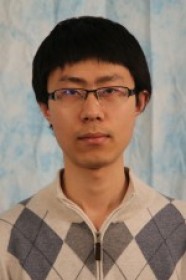Extensions of the Principal Fiber Bundle Model for Locomoting Robots
Event Location: NSH 1507Abstract: Our goal is to establish a rigorous formulation for modeling the locomotion of a broad class of robotic systems. Recent research has identified a number of systems with the structure of a principal fiber bundle. This framework has led to a number of tools for analysis and motion planning applicable to [...]
Improving Prediction of Traversability for Planetary Rovers Using Thermal Imaging
Event Location: GHC 4405Abstract: The most significant mobility challenges that planetary rovers encounter are compounded by loose, granular materials that cause slippage and sinkage on slopes or are deep enough to entrap a vehicle. The inability of current technology to detect loose terrain hazards has caused significant delays for rovers on both the Moon and [...]
Deep Robotic Learning
Sergey Levine Assistant Professor, UC Berkeley Abstract Deep learning methods have provided us with remarkably powerful, flexible, and robust solutions in a wide range of passive perception areas: computer vision, speech recognition, and natural language processing. However, active decision making domains such as robotic control present a number of additional challenges, standard supervised learning methods [...]
Learning to Learn and Structure Learning in Model Spaces for Small Sample Visual Recognition
Yuxiong Wang Carnegie Mellon University Abstract Understanding how to recognize novel categories from few examples for both humans and machines remains a fundamental challenge. Humans are remarkably able to grasp a new category and make meaningful generalization to novel instances from just few examples. By contrast, state-of-the-art machine learning techniques and visual recognition systems typically [...]
The lifetime of an object – an object’s perspective onto interactions
Event Location: Newell Simon Hall 1507Bio: Lecturer (Assistant Professor) in Computer Vision at the University of Bristol. Received her PhD from the University of Leeds (2009). Dima's research interests are in the automatic understanding of object interactions, actions and activities using static and wearable visual (and depth) sensors. Dima co-chaired BMVC 2013, is area chair [...]
The lifetime of an object – an object’s perspective onto interactions
Dima Damen Assistant Professor, University of Bristol, United Kingdom April 10, 2017, 3:00-4:00 p.m., Newell Simon Hall 1507 Abstract As opposed to the traditional notion of actions and activities in computer vision, where the motion (e.g. jumping) or the goal (e.g. cooking) is the focus, I will argue for an object-centred perspective onto actions and [...]
Safe, Efficient, and Robust Predictive Control of Constrained Nonlinear Systems
Vishnu R. Desaraju Carnegie Mellon University April 12, 2017, 2:00 p.m., NSH 1305 Abstract As autonomous systems are deployed in increasingly complex and uncertain environments, safe, accurate, and robust feedback control techniques are required to ensure reliable operation. Accurate trajectory tracking is essential to complete a variety of tasks, but this may be difficult if [...]
Computer Vision @ Scale
Manohar Paluri Research Lead, Facebook Abstract Over the past 5 years the community has made significant strides in the field of Computer Vision. Thanks to large scale datasets, specialized computing in form of GPUs and many breakthroughs in modeling better convnet architectures Computer Vision systems in the wild at scale are becoming a reality. At [...]
“Ensuring Safe Human-Robot Co-Existence by Reachability Analysis”
Matthias Althoff Technische Universität München Abstract Modern manufacturing companies are expected to quickly and efficiently adapt to production changes, and robotics has long been known as the candidate solution for the required flexibility. To improve such flexibility, future working environments will be populated by both humans and robot manipulators, sharing the same workspace. This scenario [...]








